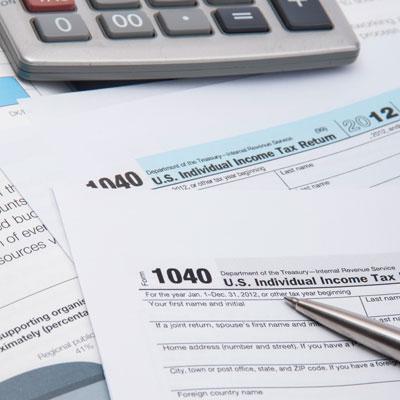New Massachusetts Software Services Tax Highest In Nation
While New Mexico, Hawaii and South Dakota also have taxable computer services, none are as high as the 6.25 percent sales tax in Massachusetts. Mexico's is 5.125 percent tax, while both Hawaii and South Dakota's are 4 percent. Massachusetts State Representative James Lyons (R-Andover) said that the new tax is going to reduce the state's competitiveness on a national scale.
"What we're recognizing is that demand for the people of Massachusetts to pay more in taxes is going to hurt every single taxpayer in the Commonwealth," said Lyons, who voted against the bill. "It's going to lead to less jobs, less economic activity and less revenue."
[Related: What Do You Need To Know About The Massachusetts Software Services Tax? ]
Lyons recalled the story from one small business owner he spoke to who was in competition with a company in New Hampshire, which has no sales tax. The $60,000 contact would have been subject to the sales tax, which gave the Massachusetts business owner a 6.25 percent disadvantage over his counterpart just over the border offering a contract at the same price, Lyons said.
Bill Wilder, co-owner of Development Partners Software Corporation, said that the week turnaround between the passage of the tax and its implementation left him feeling blindsided. He said he has an invoice due Tuesday and doesn't know how much to charge his client because of the change.
"I'm at wits end," Wilder said about the predicament.
In an open letter to Massachusetts business owners on Aug. 6, Florida's Republican governor Rick Scott appealed to those angered by the tax, urging them to buy a one-way ticket to the Sunshine State, citing the Florida's low unemployment rate and rapidly improving economy. Florida does not tax on computer services and exempts modifications.
Connecticut, which borders Massachusetts, also taxes computer services but at a reduced rate of 1 percent. Mississippi, Nebraska, South Carolina, Tennessee, West Virginia and Wyoming have taxes on modifications but not on other services.
There is no sales tax in Alaska, Delaware, Montana, New Hampshire and Oregon. The rest of the 34 states have laws that make modifications exempt.
The legislature predicts that the Massachusetts tax, which took effect July 31, will raise $161 million as part of a bill to fund transportation in the state. However, Michael Widmer, president of the Massachusetts Taxpayers Foundation, said he predicts it will raise closer to $500 million, if not more, based on his calculations with Department of Revenue data.
"Its impact on them is going to be greater [than predicted]," Widmer said. "This is an equal opportunity tax. It's absolutely going to impact all sectors of every side."
The passage of the bill was based on an incorrect number presented to legislators that 35 states shared similar taxes, Widmer said. Without a public hearing, those voting on the tax as part of the transportation bill did not have complete information, he added.
"When I say this is the most far-reaching tax in the nation -- it is," Widmer said.
PUBLISHED AUG. 14, 2013






